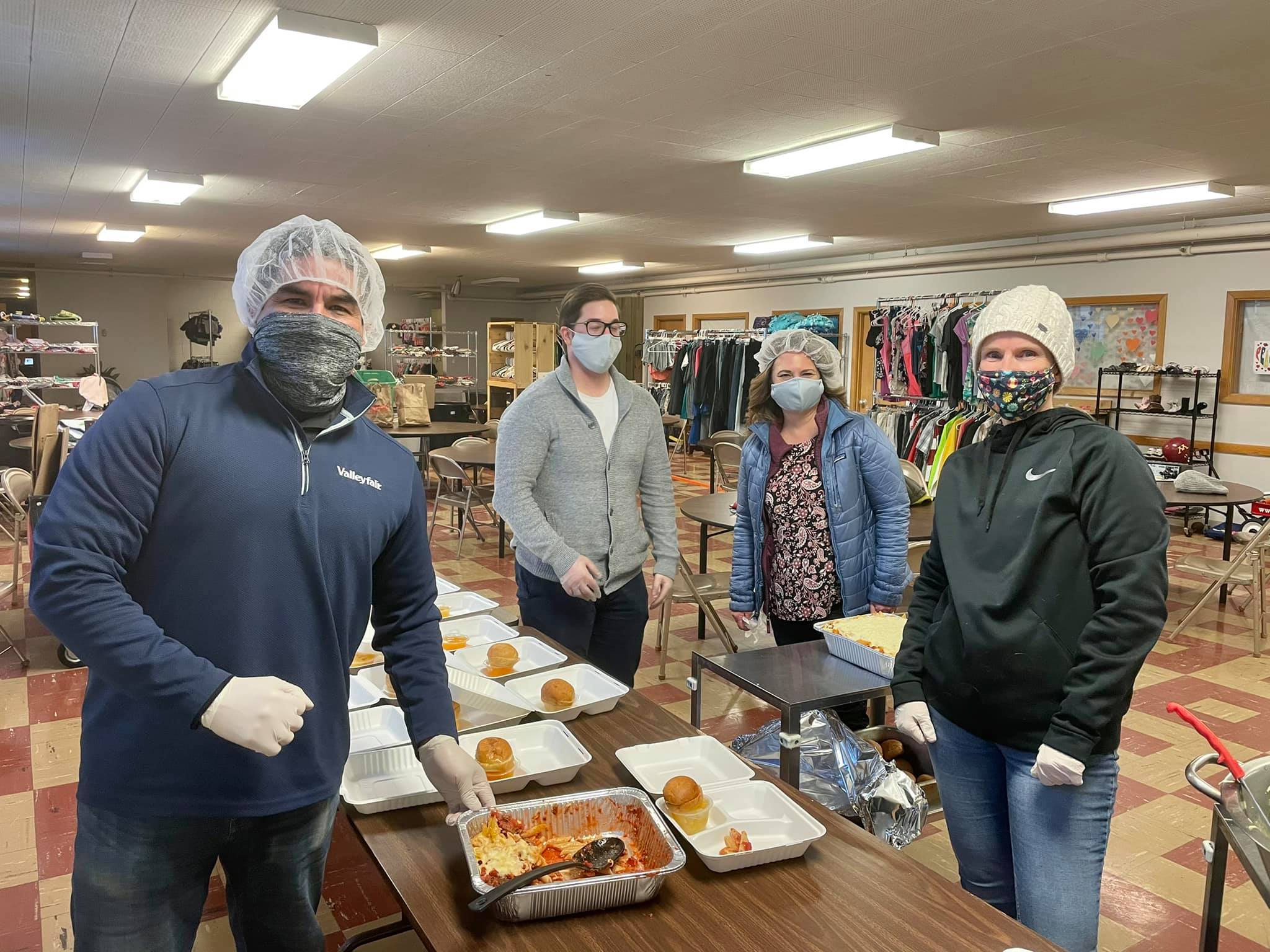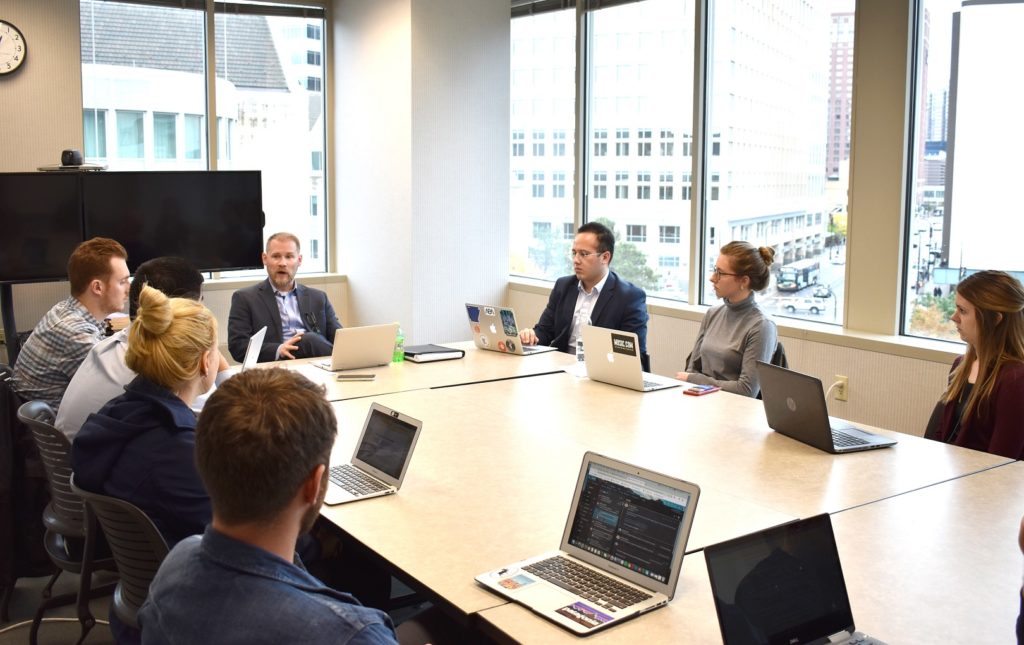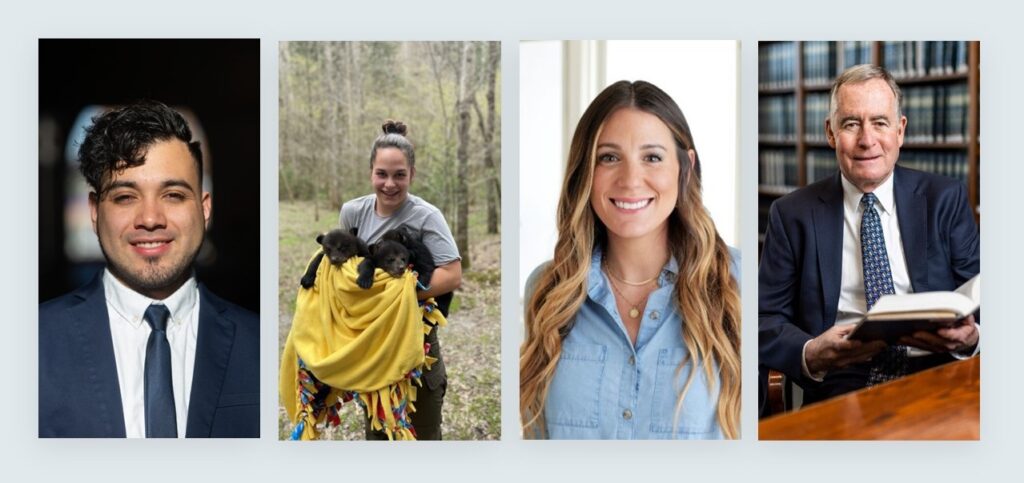This story is featured in the summer 2021 issue of St. Thomas Lawyer.
The School of Law celebrates its 20th anniversary as Minneapolis begins to emerge from the chaos of overlapping crises: the COVID-19 pandemic, and the death of George Floyd and resulting trial of former Minneapolis police officer Derek Chauvin. For a law community that places a premium on authentic personal engagement, this year’s challenges of distance learning, isolation, civil unrest and political polarization have been difficult. As we leave our homes and come back together, we have a rare opportunity to consider how we want to exist in relationship to each other within our beloved community.
At St. Thomas, legal education has always been about more than learning statutes, case law and rules; it is about relationship building and civil discourse. Graduates seek to serve the common good as professionals and as community leaders. We caught up with three alumni who told us what it means to be servant leaders and what it’s like trying to build bridges across differences.
Engage deeply in community
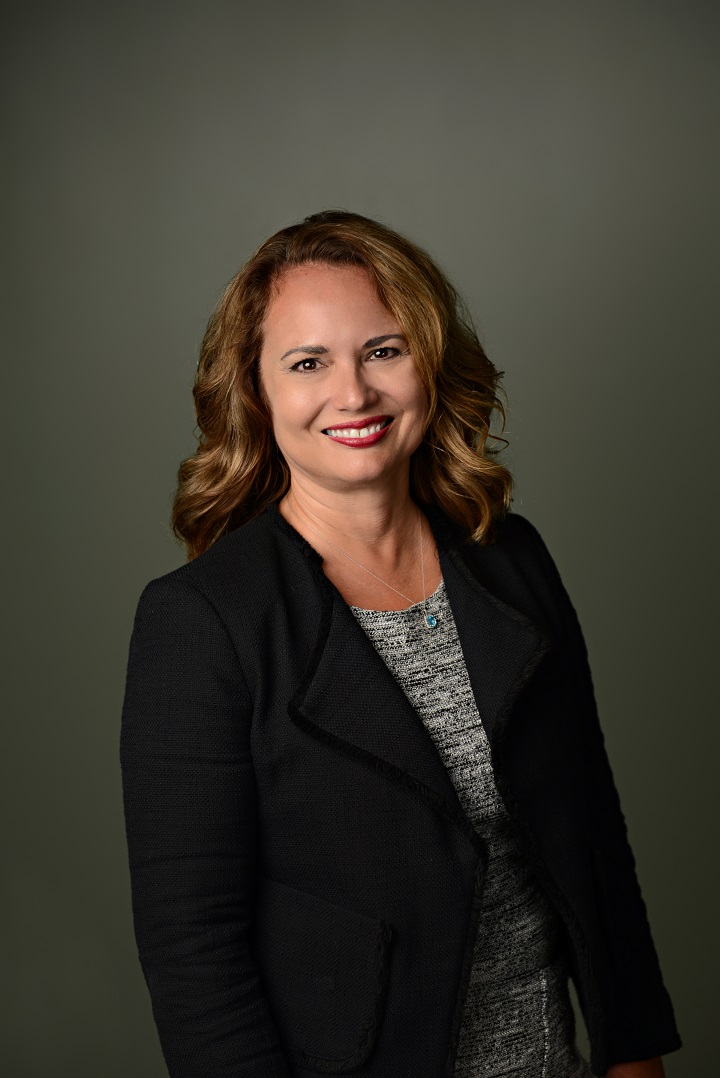
Barb Weckman Brekke ’05 J.D. is a second-term Scott County Commissioner; a founding attorney of Brekke, Clyborne & Ribich L.L.C., located in Shakopee, Minnesota; and the mother of a current St. Thomas Law student. Weckman Brekke’s interest in and excitement about county government started in her teens and has continued to grow as she serves the cities, townships, businesses and families in her large and quickly developing district.
Weckman Brekke said that elected officials, county leadership and staff, citizens and other stakeholders must work together to find positive solutions to the biggest issues facing their community.
As a county commissioner, Weckman Brekke focuses on the common good and the impact of the law on individuals and communities, which was also her focus during law school. Weckman Brekke believes that lawyers should be involved community members and leaders. “Our work is demanding and sometimes it is hard to find time and energy to engage in the community outside of work, but I feel that it is our duty as citizens to be active, engaged community members. It also makes us better lawyers.”
Weckman Brekke has found that being visible in the community also helps people of diverse backgrounds feel comfortable reaching out to her when issues arise. She proactively sends information out to stakeholders so they are aware of issues and have an opportunity to be heard. “It is important for all of us, as we live and work in community, to strive to listen to and try to relate to our neighbors. Ask questions and learn more about a situation. This is so important in building authentic connections and relationships.”
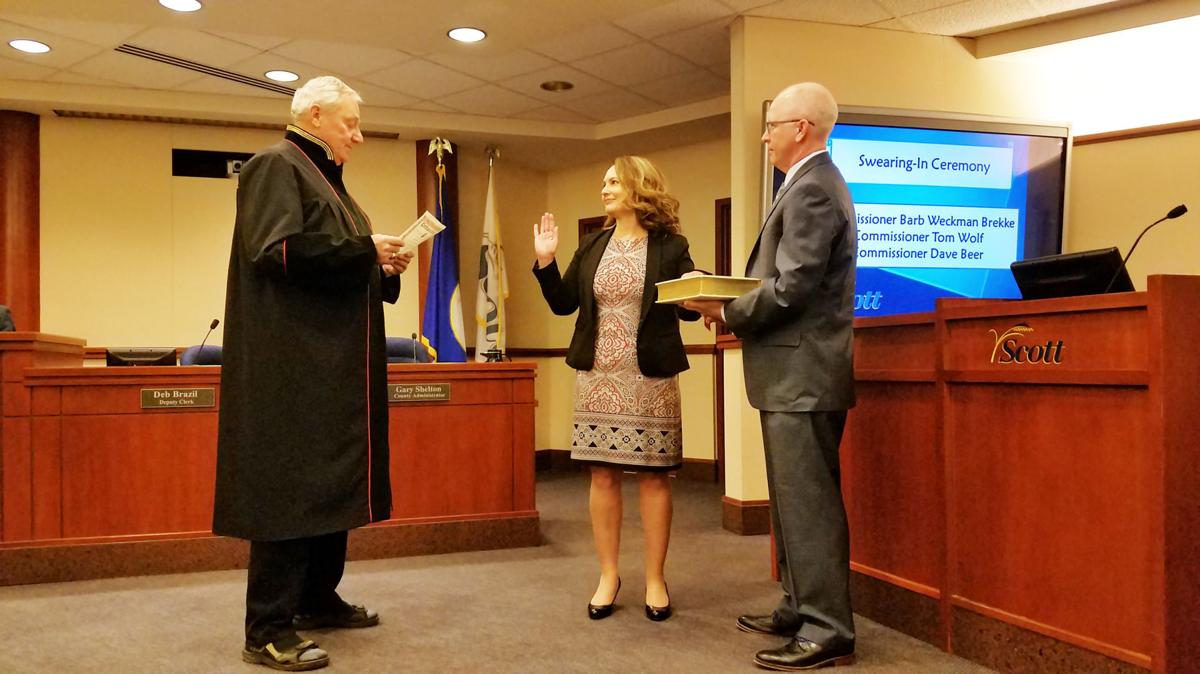
“Living and growing in community is essential to the mind and soul,” Weckman Brekke said. “Community is not just defined by geography but also industry, practice, interest and need.” She encourages law students to engage deeply with the St. Thomas Law community, their neighborhoods and in the causes important to them. “Community engagement is finding and accepting a role in the world around you. Meet people, talk with people, share and be vulnerable, and change the world!”
Meditate on the values of others
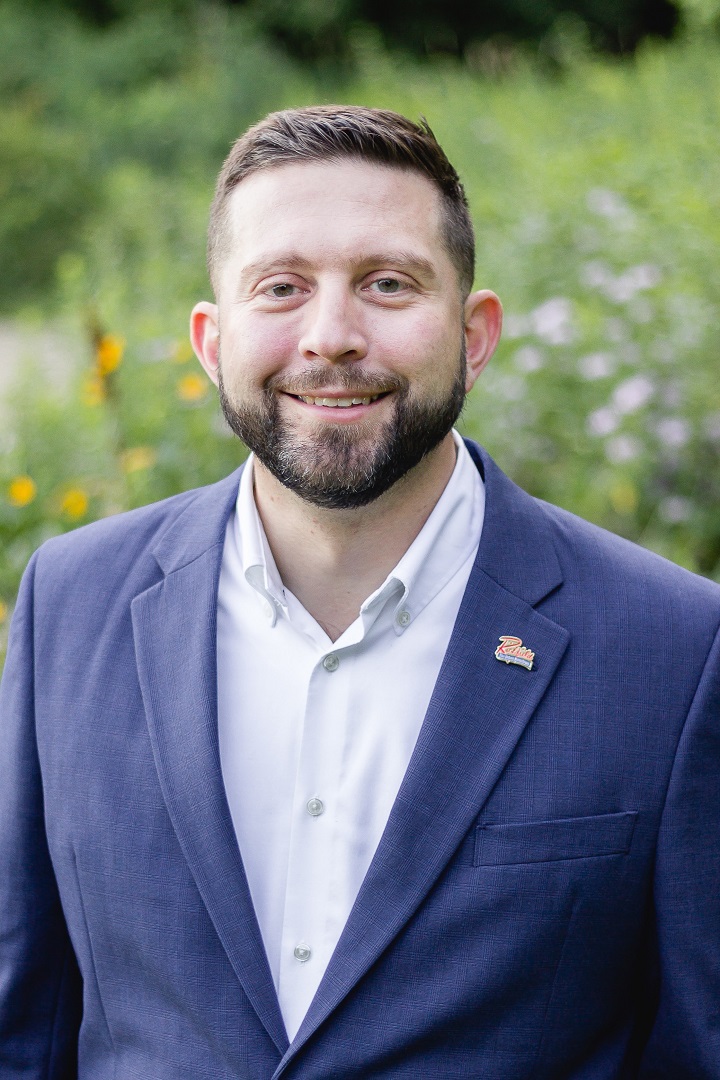
Simon Trautmann ’08 J.D. is a second-term city councilmember for Richfield, Minnesota, and a founding attorney of Trautmann Martin Law PLLC, located in Minneapolis. Trautmann has deep ties to his hometown as a “third-generation Richfielder raising the fourth generation.” He finds that serving in an elected role can be even more adversarial than the practice of law. “People care passionately – and sometimes oppositely – about their community. The challenge is always to see opponents as neighbors and people first. It is an uncommon and great privilege to restore relationships between neighbors and sometimes restore community between enemies.”
As a city councilmember, Trautmann serves diverse organizations and communities; and as a lawyer, he serves as general counsel for LGBTQIA+ and BIPOC-led organizations. In his experience, consensus building “starts with understanding what is important to people and communities that come from different places. It is valuable to meditate on the values of others. Sometimes it just takes sitting with a seemingly contradictory set of values for an extended period of time. Often it involves being in community with people for common values and goals to emerge. But every good lawyer is always keenly studying and intuiting the values and priorities of others.”
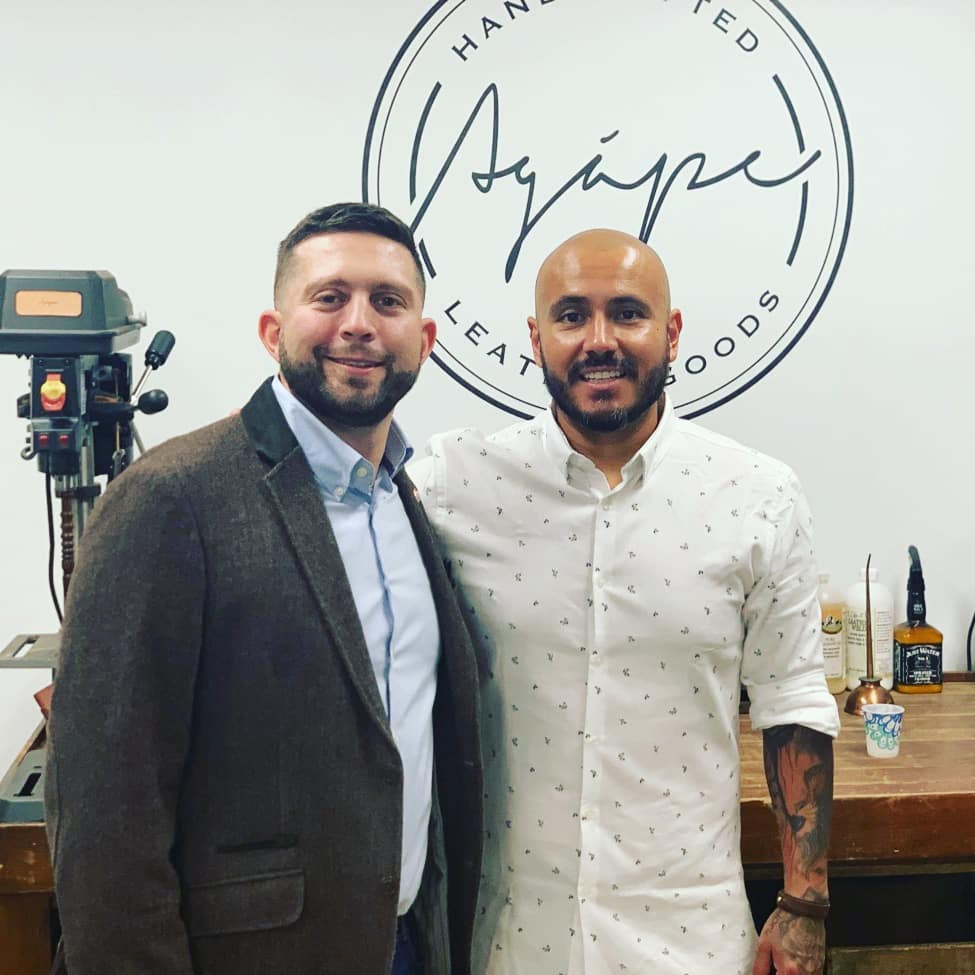
Since law school, Simon Trautmann has made community engagement a priority, and now as a city councilmember, Trautmann has continued that commitment and regularly meets with members of the Richfield community. Photo one by Jennifer Trautmann, Gratitude Photography. Photos two and three by Simon Trautmann. 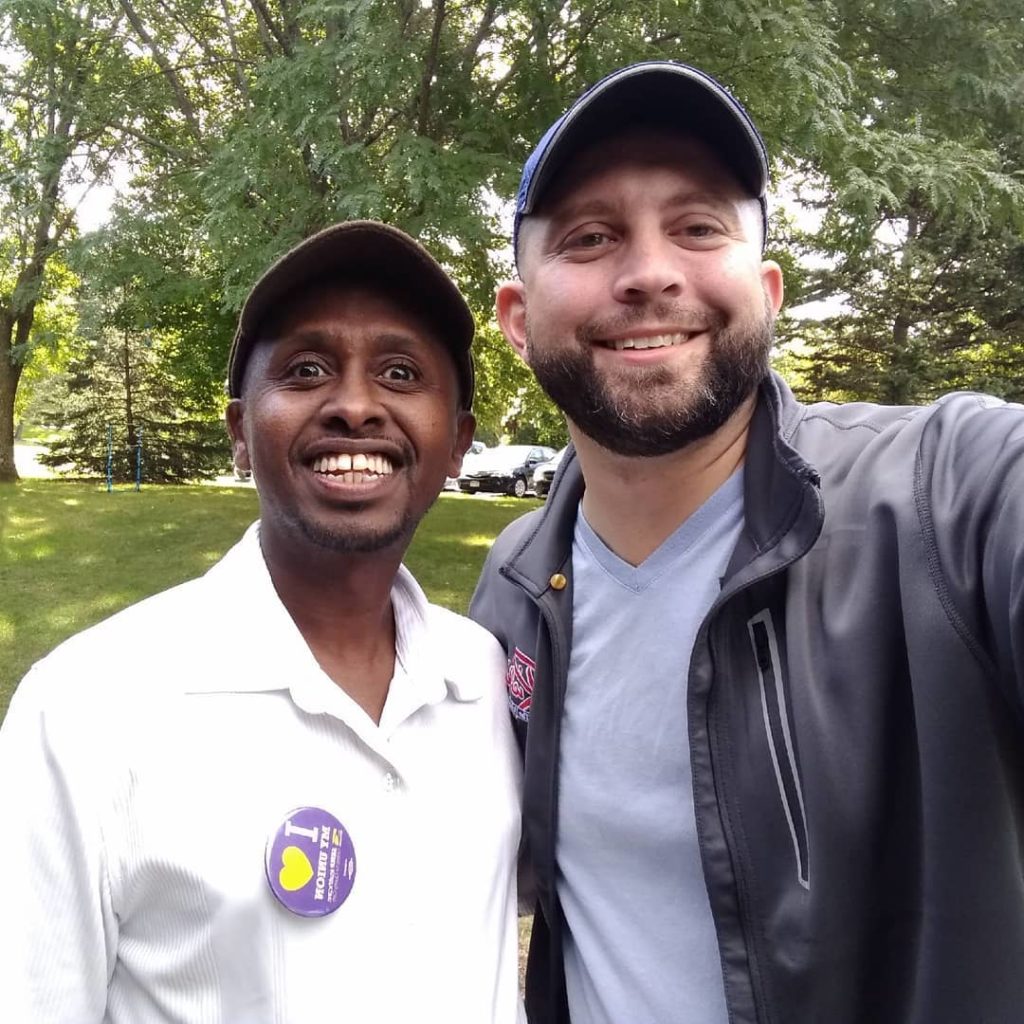
Since law school, Simon Trautmann has made community engagement a priority, and now as a city councilmember, Trautmann has continued that commitment and regularly meets with members of the Richfield community. Photo one by Jennifer Trautmann, Gratitude Photography. Photos two and three by Simon Trautmann. 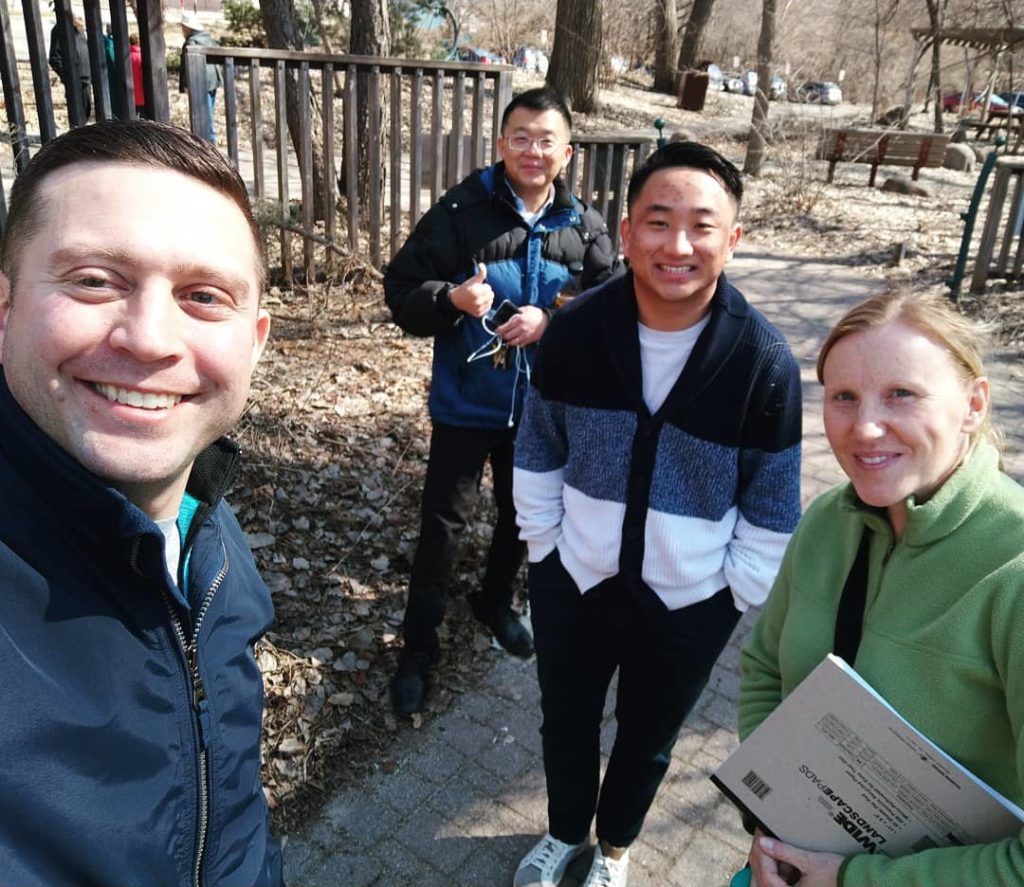
Since law school, Simon Trautmann has made community engagement a priority, and now as a city councilmember, Trautmann has continued that commitment and regularly meets with members of the Richfield community. Photo one by Jennifer Trautmann, Gratitude Photography. Photos two and three by Simon Trautmann.
When asked how lawyers can encourage civility, Trautmann said, “Effective lawyers are masters of framing and context. And they are also tough. Better than most, I think lawyers can hold space for people and causes in ways that are passionate but not bitter. We can advocate without personally destroying people.”
Trautmann credits his St. Thomas Law training for “grounding passion in reason, and advocacy in morality and social justice. We can peaceably, but firmly, engage in conversations (especially around justice issues) with patience, diligence and firmness. I am grateful for so many St. Thomas lawyers who can and are doing this work.”
Trautmann encourages law students to engage in their communities right away. “Don’t wait. Get involved now. Life will not slow down after law school. There is a temptation in law school to focus on academics to the exclusion of nearly all else. But as demanding as law school is, practice can be more demanding still. The demands of real clients take more time and energy than exams. Family commitments often grow as you get older. If you haven’t cultivated a habit of community engagement in law school, it may be hard to do it as a new lawyer.”
Intentionally invest yourself
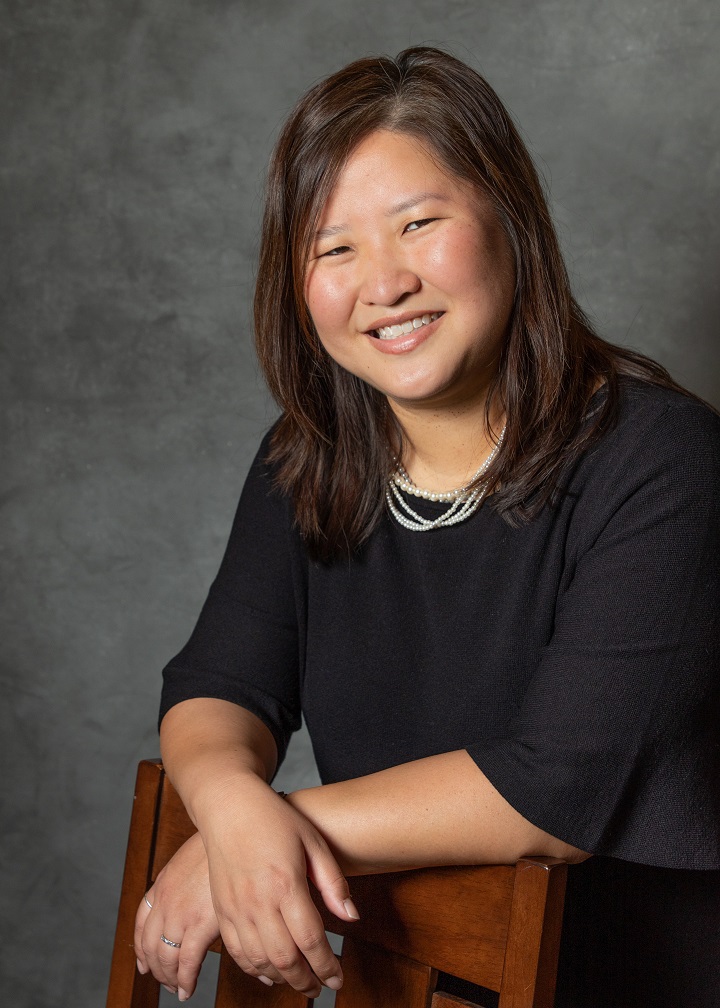
Pamela Steinle ’11 J.D. opened Steinle Law PLLC in her hometown of St. James, Minnesota, where she also serves as the co-president of the St. James Rotary Club, a service organization, and oversees children’s ministries at her church. To Steinle, servant leadership means intentionally donating resources – time, talent and treasure – to the community.
Her philosophy of servant leadership is inspired by Matthew 5:14–16: “You are the light of the world. A town built on a hill cannot be hidden. Neither do people light a lamp and put it under a bowl. Instead they put it on its stand, and it gives light to everyone in the house. In the same way, let your light shine before others, that they may see your good deeds and glorify your Father in heaven.”
St. Thomas taught Steinle that when it comes to voicing differing viewpoints effectively, “it is all about relationships.” She recalled a time when one student made political statements during class that were afterward criticized by peers in a casual conversation. When Steinle voiced her support for the controversial comments, the tone changed, and a respectful and analytical dialogue ensued. “At some point, my classmates confessed they had never met someone like me who held those beliefs. The key was that they had ‘never met’ someone like me – because I’m sure there are a lot of people in the world ‘like me,’ but my classmates had yet to develop the kind of trusting relationship that would allow true debate to occur.” Steinle defines true debate as an honest exchange of ideas where both parties are able to be vulnerable as they receive, process and articulate viewpoints in the search for truth.
Steinle warns against the temptation of dwelling too long in the “echo chamber,” where your professional circle is in unanimous agreement on all divisive issues. For example, in rural Minnesota it is easy to isolate oneself and interact solely with attorneys within your own firm, or who share your opinions and beliefs. Steinle challenges lawyers to purposefully join organizations like the state and local bar associations, where a diverse membership is united under a common affinity, and then seek out opportunities to develop collegial relationships where true debate can occur.
Steinle uses her voice and her professional network to amplify diverse perspectives. She is currently promoting a presentation titled “The Intersection of Race Law, and Art” by Sandy Sunde, a local community member whose work features visual impressions to reflect cultural views of racial and ethnic bias and prejudice. After Sunde presented to Steinle’s Rotary club, the two began working together to modify the presentation to tailor themes more specifically to the practice of law and administration. Steinle helped Sunde apply for elimination of bias credit in connection with presenting Sunde’s work to Minnesota’s Sixth District Bar Association, and she continues to look for opportunities to bring the presentation to a broader audience.
For Steinle, community leadership is about really investing yourself. “It is better to be the best parliamentarian in one community group than to be a half-committed president of five. Start slowly by picking one organization at first, and over time, consider whether to add another organization or maybe transition to a new one entirely. The community respects those who communicate their intentions and follow through in the small things as well as the big.”
As we reflect upon 20 years of educating St. Thomas lawyers, success can be defined in many ways. One keen example is seeing our graduates apply skills cultivated during law school for the benefit of society through public service.
